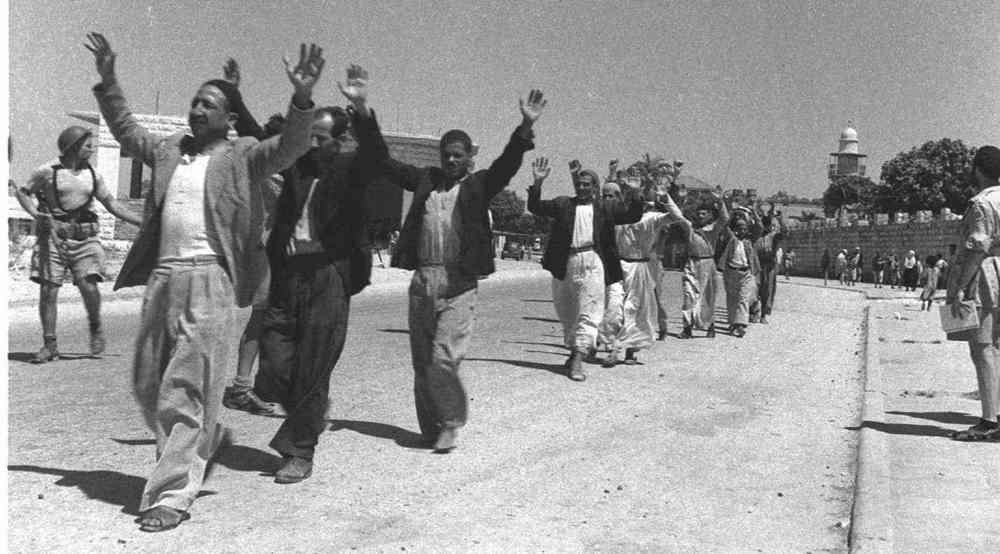Introduction: The Nakba and Its Ongoing Legacy
The concept of Nakba, which translates to “catastrophe,” marks a pivotal moment in the history of the Palestinian people. It refers to the mass expulsion of over 750,000 Palestinians from their homeland during the establishment of the State of Israel in 1948. This displacement, often seen as a form of ethnic cleansing, has left an indelible mark on the political landscape of the Middle East. As we reflect on the 75th anniversary of the Nakba, it is important to understand how these events continue to influence current geopolitical dynamics, especially with the rise of far-right politics in Israel, the deepening humanitarian crises in Palestinian territories, and the persistent international debate surrounding the rights of displaced peoples.
Historical Context: The Creation of Israel and Its Consequences
The proclamation of the State of Israel on May 14, 1948, was accompanied by a campaign of violence led by Zionist paramilitary groups, aimed at securing territory for the new Jewish state. This resulted in the destruction of hundreds of Palestinian villages and the forced displacement of their inhabitants. Despite efforts to present Israel as a “land without a people for a people without a land,” the historical evidence shows that Palestine was already home to a flourishing agricultural economy and a vibrant population. The Nakba was not an isolated event but part of a larger plan to secure land for Jewish immigrants while systematically erasing the Palestinian presence.

The Role of International Actors
Internationally, the British and the United States played significant roles in shaping the fate of Palestine. British imperialism, which had previously controlled the area under a mandate, withdrew from the region under mounting pressure from both Jewish and Arab groups. The United Nations’ Partition Plan of 1947, which proposed the creation of separate Jewish and Arab states, only further inflamed tensions. The Western powers’ support for the establishment of Israel, and their ongoing political and military backing, have continued to fuel the conflict, complicating peace efforts.
The Evolution of Palestinian Resistance
The Nakba marked the beginning of a long-standing struggle for the Palestinian people. Over the years, this resistance has evolved, most notably through the First and Second Intifadas, which were mass uprisings against Israeli occupation. These movements have highlighted the resilience of the Palestinian people in the face of overwhelming military power. The rise of Palestinian resistance also gave birth to various factions, such as Hamas, which has since become a significant player in the political landscape. However, internal divisions and external pressures have often hindered the effectiveness of Palestinian leadership, leaving the population caught between military occupation and corrupt governance.
Modern Implications: The Rise of Far-Right Politics in Israel
In May 2023, the Israeli government, led by Prime Minister Benjamin Netanyahu, is facing an unprecedented political crisis. The judicial reforms proposed by Netanyahu’s far-right government have triggered mass protests across the country. These reforms, seen as a power grab by the government, threaten to undermine Israel’s democratic institutions and have further polarized Israeli society. At the same time, the rise of extremist figures like Itamar Ben-Gvir, who espouses Jewish supremacist views, has further marginalized the Palestinian population. Ben-Gvir’s rhetoric, which advocates for the expulsion of Palestinians from historic Palestine, echoes the policies of the Nakba, fueling fears of a renewed wave of ethnic cleansing.
The Ongoing Humanitarian Crisis
The humanitarian situation in Gaza and the West Bank continues to deteriorate. Gaza, often described as the world’s largest open-air prison, faces regular bombardments from Israeli forces, leading to widespread destruction and loss of life. In May 2023, Israel launched a series of airstrikes on Gaza, resulting in the deaths of dozens of civilians. The blockade imposed on Gaza has crippled the economy, leaving much of the population in dire poverty. In the West Bank, the illegal expansion of Israeli settlements has made it increasingly difficult for Palestinians to maintain control over their land. The Israeli military’s continued presence in these territories, coupled with the actions of settler militias, has led to a climate of fear and insecurity for Palestinians.
The International Response
Despite the ongoing violence, the international community has largely failed to hold Israel accountable for its actions. Western governments, particularly the United States and the United Kingdom, continue to provide diplomatic and military support to Israel. This complicity has drawn widespread criticism from human rights organizations and pro-Palestinian activists. In May 2023, large-scale protests erupted across Europe and the United States to mark the 75th anniversary of the Nakba. These demonstrations highlighted the growing global solidarity with the Palestinian cause, as well as the increasing disillusionment with Western governments’ support for Israel.
Conclusion: The Path Forward
As we reflect on the events of May 2023, it is clear that the struggle for Palestinian liberation is far from over. The legacy of the Nakba continues to shape the political and social landscape of the region, with the Israeli government’s far-right turn exacerbating tensions. The Palestinian people remain resilient, but without meaningful international intervention and a genuine commitment to peace, the cycle of violence and oppression will continue. Only through a unified international movement that challenges both Israeli apartheid and Western imperialism can there be hope for a just and lasting solution to the Palestinian question.


